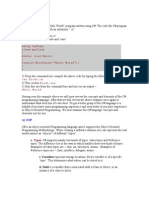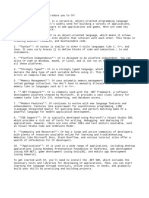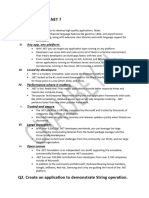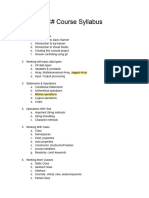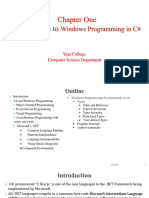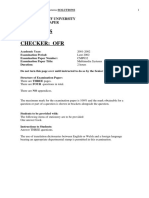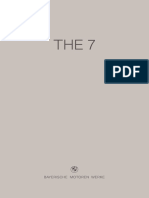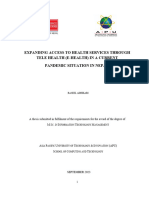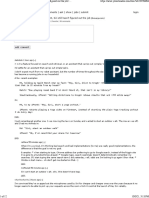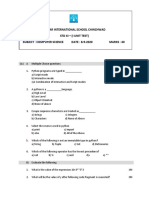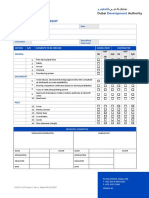0% found this document useful (0 votes)
61 views5 pagesCSharp Full Notes
This document provides comprehensive notes on C#, covering its overview, setup, and various programming concepts including data types, control statements, object-oriented programming, and advanced topics. It also discusses project creation, file handling, exception management, and best practices for coding. The notes serve as a guide for understanding and utilizing C# in various applications.
Uploaded by
ppreetham973Copyright
© © All Rights Reserved
We take content rights seriously. If you suspect this is your content, claim it here.
Available Formats
Download as PDF, TXT or read online on Scribd
0% found this document useful (0 votes)
61 views5 pagesCSharp Full Notes
This document provides comprehensive notes on C#, covering its overview, setup, and various programming concepts including data types, control statements, object-oriented programming, and advanced topics. It also discusses project creation, file handling, exception management, and best practices for coding. The notes serve as a guide for understanding and utilizing C# in various applications.
Uploaded by
ppreetham973Copyright
© © All Rights Reserved
We take content rights seriously. If you suspect this is your content, claim it here.
Available Formats
Download as PDF, TXT or read online on Scribd
/ 5


































